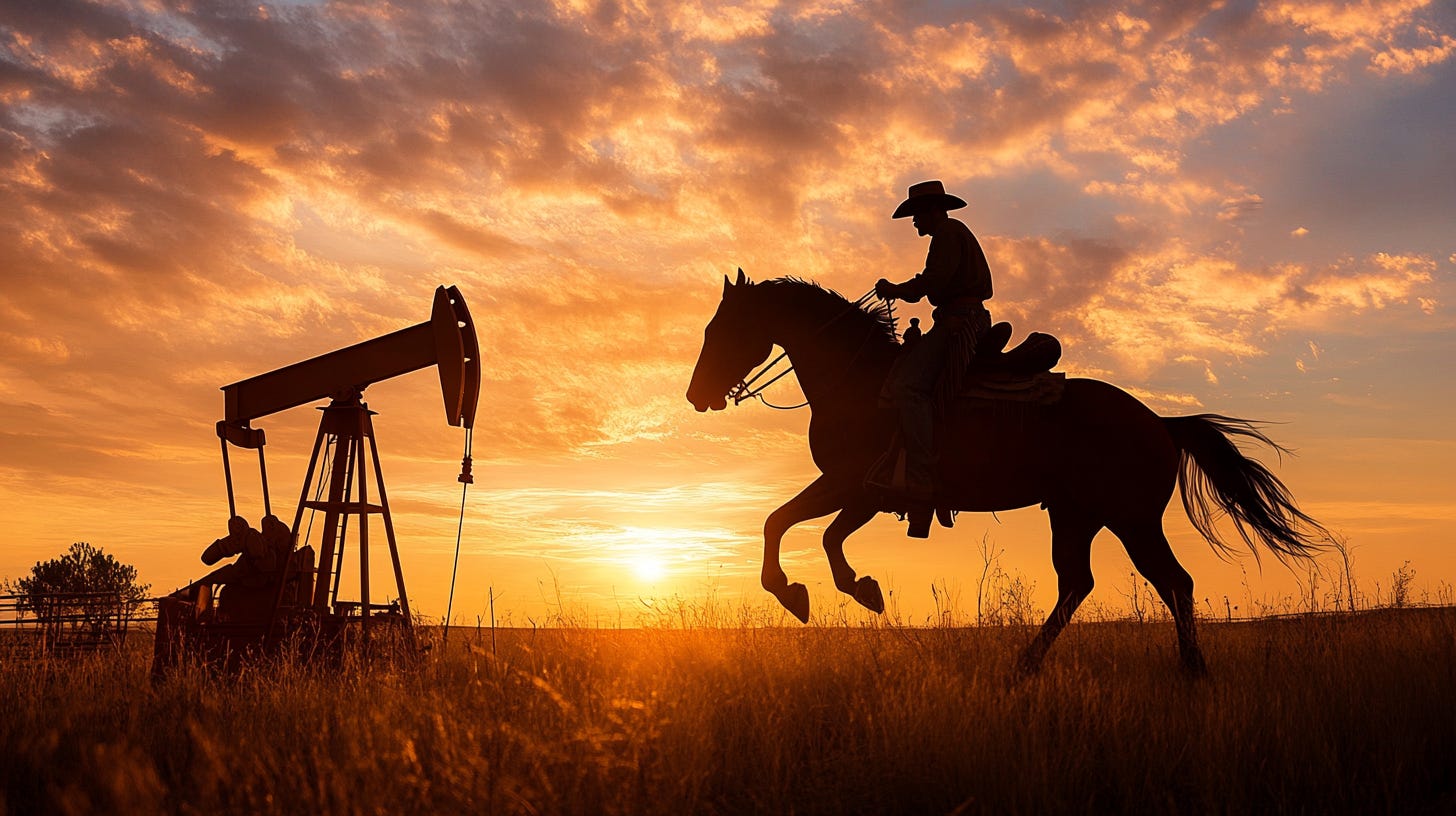That time the Columbia Journalism Review criticized me for *checks notes*... talking to experts in oil and gas
The CJR's sad hit piece illustrates why the newest generation of energy reporters are clueless
The Columbia Journalism Review once wrote a hit piece on Cowboy State Daily, where I was the energy reporter at the time. I consider it one of the greatest moments of my entire journalism career. Not only does the article explain why you should read my articles, it also illustrates why energy reporting today is so absolutely awful.
Cowboy State Daily gave me the opportunity to do what few energy reporters can or will do. I platformed perspectives who dispute the “climate crisis” narrative, and challenged the status quo. In today’s newsrooms, reporters are expected to regurgitate official government narratives, and I was never good at that kind of obsequious conformity. If I was, I likely would have pursued a career in academia.
Cowboy State Daily is a Wyoming publication, and it’s been a phenomenal success, dominating the entire Wyoming media landscape. It achieves this success by writing articles people want to read, as opposed to articles that reporters think they should want to read. However, because it appeals to Wyoming’s mostly conservative readers, it’s been the target of liberal outrage, including its rivals at Wyofile, another Wyoming publication that has fallen considerably in prominence in the wake of Cowboy State Daily’s rise.
The Columbia Journalism Review is a publication of the Columbia University Graduate School of Journalism, which is to say it’s a reflection of the newest generation of journalists entering newsrooms today. And from this sad publication, you can see why trust in media is at an all time low.
In August 2023, the CJR wrote a hit piece on Cowboy State Daily, including whiny quotes from Wyofile’s editors, as if they would be objective sources on their competitors. There’s plenty to say about the whole CJR article, but I’ll focus on what it had to say about my reporting. It didn’t name me, and instead referred to “Cowboy State Daily’s energy reporting.” I really wish they would have named me so people would see the article when they Google my name.
Anyway, according to the CJR, my reporting “appeared to throw doubt on the reality of man-made climate change, which is the consensus among the global scientific community.” That was rather nice of them to open up with a compliment on my work, but they are exaggerating.
The CJR reporters offer up a few of the headlines from my Cowboy State Daily articles as examples of my glorious acts of heresy:
“Study Says Climate Change Fear-Mongering Severely Impacting Children’s Mental Health”
“National Teachers Group Censors Climate Science That Doesn’t Conform to Disaster Agenda”
“Woke Capitalism Takes Another Blow as Vanguard Withdraws from Climate Alliance”
“Is Greta Thunberg Actually Smart or Is She Just a Propped-Up Celebrity Armed with a PR Machine?”
So, the global consensus, according to the CJR, is that we should terrify children by telling them the world is coming to an end without any regard to their mental health, bow to the ESG agenda without question, and glorify the prophet Greta Thunberg.
The CJR reporters didn’t cite any study or survey or anything demonstrating how these articles challenged any global consensus, but this is what passes for energy journalism at an elite journalism school. They really believe that there’s an absolute scientific consensus supporting whatever ideological positions they hold. As someone who actually reads studies, I’m familiar with Cook et al. 2016, and I assure you, there’s nothing about Greta Thunberg in it.
There’s plenty of legitimate criticism of the methodology the study uses, and on a few occasions, I did quote people who question this alleged and highly limited consensus on anthropogenic global warming. I didn’t always agree with them, but I have this radical notion that it’s not my job as a journalist to be the arbitrator of truth. So, I’m happy to present perspectives I don’t agree with and let readers decide if those positions hold merits. This goes against what’s being taught in journalism schools today.
The CJR “reporters” then bring in the Tow Center for Digital Journalism to do an analysis of my reporting in a rather amusing effort to give this politicized hit piece a verisimilitude of objectivity. They tallied up the number of times I quoted organizations that have “links to climate denial.”
These evil heretics include the Heartland Institute, Manhattan Institute, the Institute for Energy Research and the American Petroleum Institute. The Tow Center then cites DeSmog — an activist website known for publishing political smears against anyone who questions the climate crisis agenda, even those who actively affirm the so-called scientific consensus — to support its claim that these are really bad people and no reporter should ever interview them.
In the next paragraph they state that these sources I was interviewing are oil and gas industry groups or they have received money from oil companies. That’s an interesting criticism from a publication that is funded by the Rockefeller Family and Associates, an organization that spends millions every year to promote the wind and solar industry, while demonizing fossil fuels.
Besides showing the shameless propagandizing that academic journalists today think is good reporting, the CJR’s hit piece on me and my colleagues at Cowboy State Daily betrayed a rather sad fact about energy reporters today. Most energy reporters are taught and obey a directive that says that you never, ever talk to anyone with a lot of knowledge, background, expertise and experience in the oil and gas industry. They’re entire understanding of energy is based on speaking exclusively to people who really, really hate the industry and want it destroyed.





Kevin, have you considered starting a school for journalists? It is sorely needed.
Keep up the good work